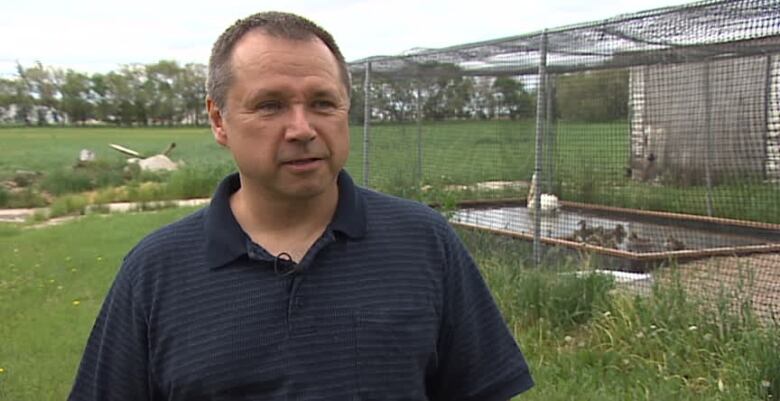Baby animals fill up Manitoba wildlife centre
Some animals that were rescued were probably not abandoned, centre staff say
A Manitoba wildlife rehabilitation centre is dealing with an influx of baby rabbits, birds,beavers,raccoons and other animals that are injured or abandoned or, in some cases, wrongly believed to be abandoned.
The Wildlife Haven Rehabilitation Centre near Ile des Chnes, Man., receives hundreds of animals this time of year, including up to 300 baby cottontail rabbits alone.
"This is our baby season right now," said Dan Diawol, who sits on the board of directors at the Wildlife Haven. "Weve probably got 60 or 70 assorted orphaned animals in our care right now."
"You have to make sure the animal is gaining weight every day, so a lot of development they're moving really, really quickly and developing really fast, so it's a lot of fun to see them grow,"said Katelyn Ferry, a veterinarystudent, seasonal employee andvolunteer at the Wildlife Haven.
The Winnipeg Humane Society is also seeing spring babies.
Laina Hughes, Winnipeg Humane Society spokesperson, said they receive kittens and puppies, but also five to 10 wild animals a day.
"We can take them in and assess them, we do have a clinic here that we can take care of the animals,"said Hughes. "But they do always go to the [Wildlife Haven Rehabilitation Centre], so it is best to call them first."
'Unnecessary orphans'
Officials with the centre say some of the animals that have come in recently did not need to be rescued.
"Some are true orphans and some are unnecessary orphans,"said Diawol.

Staff said people often see young birds and baby rabbits on the ground,but that doesn't necessarily mean the animals were orphaned.
"This is the time of year many birds are leaving their nest and mom will naturally feed them on the ground for three days to a week before they're actually flying so, again, if you see a bird on the ground that doesn't look injured but it looks young, it's usually a best bet to leave it alone," said Diawol.
Signs that an animal doesneed to be rescued are blood, broken wings or legs ora bird laying on its side.
The rehabilitation centre's website has guidelineson when to rescue an animal, but staff recommend calling ahead before interfering with any creature.
"By and large, leave it be until you talk to us, because once you've removed it from its setting it may disturb its natural [development], being fed or cared for by its parents," said Diawol.













_(720p).jpg)


 OFFICIAL HD MUSIC VIDEO.jpg)
.jpg)



























































































